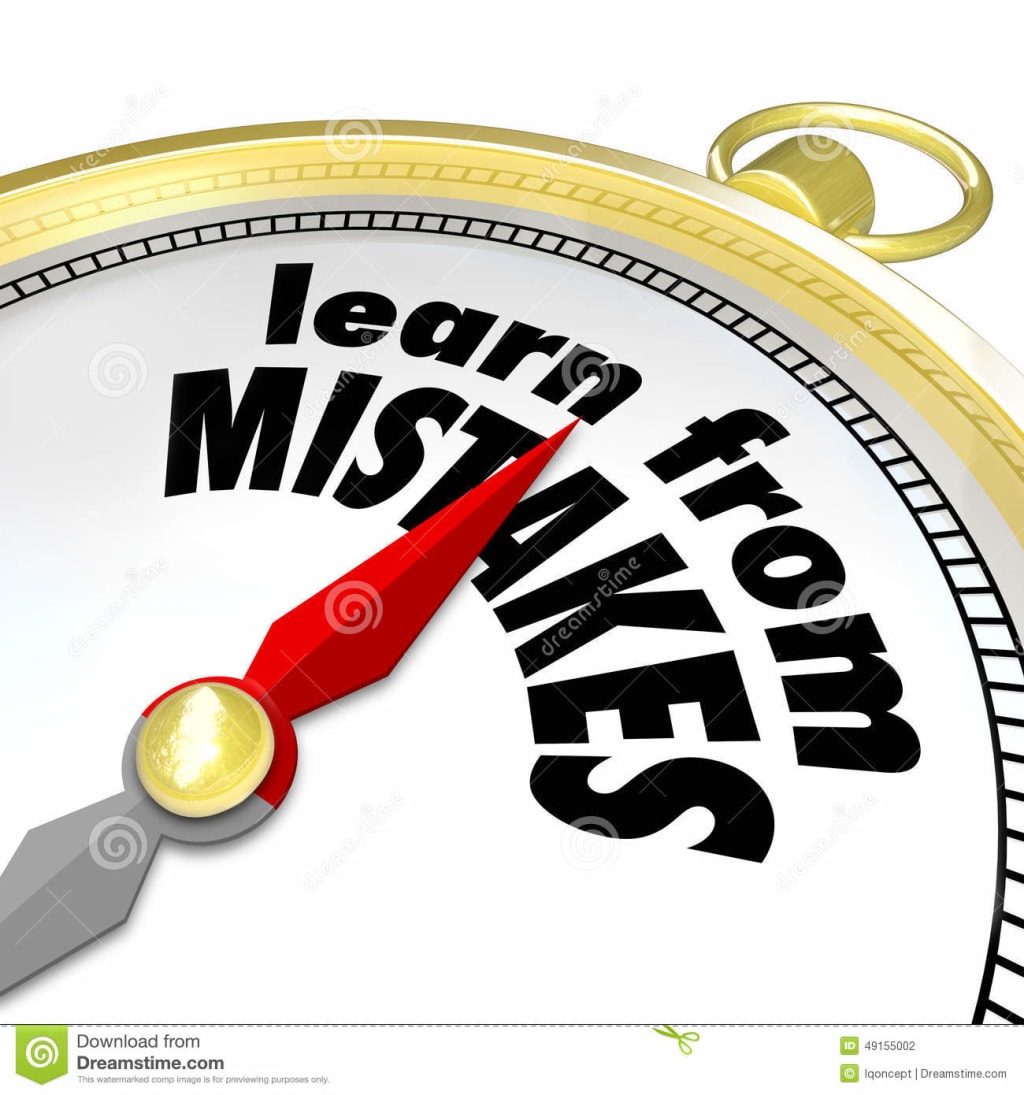
Learning from failure and mistakes is important because it can lead to growth and development. By analyzing failures, we can identify areas for improvement and learn new skills and strategies. Reframing failures as opportunities for growth can help us overcome psychological barriers to learning from failure.
Introduction:
Failure and mistakes are an inevitable part of life. Whether we're pursuing a new career, starting a business, or simply trying to improve ourselves, we're bound to encounter setbacks and obstacles along the way. However, while failure can be discouraging and demotivating, it can also be an opportunity for growth and development. By learning from our mistakes and failures, we can identify areas for improvement, develop new skills and strategies, and ultimately achieve greater success.
In this blog post, we'll explore the importance of learning from failure and mistakes. We'll discuss the benefits of failure, the psychology of handling failure, specific strategies for learning from failure, and real-life case studies of individuals who have turned failures into success stories. By the end of this post, you'll have a better understanding of how to approach failures in a positive, growth-oriented way that will help you achieve your goals.
II. The Benefits of Failure and Mistakes
Failure and mistakes can be difficult to handle, but they can also be valuable opportunities for growth and development.
Here are some of the benefits of learning from failure:
1. Develop resilience: Failure can help us develop resilience, which is the ability to bounce back from setbacks and keep moving forward. When we experience failure, we're forced to confront our weaknesses and limitations, which can be uncomfortable but ultimately empowering.
2. Identify areas for improvement: Failure can also help us identify areas where we need to improve. When we fail at something, it's often because we lacked a certain skill or knowledge. By analyzing our failures, we can identify these gaps and work to fill them.
3. Learn new skills and strategies: Failure can also be an opportunity to learn new skills and strategies. When we fail at something, it's often because we were using the wrong approach or strategy. By experimenting with different approaches, we can develop new skills and strategies that will help us succeed in the future.
Many successful individuals have experienced failure and used it as a learning opportunity. For example:
- J.K. Rowling was rejected by 12 publishers before Harry Potter was finally accepted.
- Walt Disney was fired from a newspaper job because he "lacked imagination" and "had no good ideas".
- Michael Jordan was cut from his high school basketball team.
Each of these individuals could have given up after experiencing failure, but instead they used it as motivation to keep pushing forward and ultimately achieve great success.
By learning from their examples, we can see that failure is not the end of the road - it's simply a detour on the path to success.
III. The Psychology of Failure and Mistakes
While failure and mistakes can be valuable learning opportunities, they can also be difficult to handle psychologically. Here are some reasons why:
1. Fear of judgment: We often fear being judged by others when we fail. This fear can be especially strong if we've invested a lot of time, money, or emotion into something.
2. Negative self-talk: When we fail, it's easy to fall into negative self-talk and start believing that we're not good enough or that we'll never succeed.
3. Loss of motivation: Failure can also lead to a loss of motivation. When we don't see immediate results from our efforts, it can be tempting to give up.
To overcome these psychological barriers, it's important to develop a growth mindset - that is, a mindset that sees failure as an opportunity for learning and growth rather than as a reflection of our worth as individuals. Here are some strategies for developing a growth mindset:
1. Reframe failure as an opportunity: Instead of seeing failure as a negative outcome, try reframing it as an opportunity to learn and grow. Ask yourself what you can learn from the experience and how you can use that knowledge to improve in the future.
2. Practice self-compassion: Be kind to yourself when you experience failure. Remember that everyone fails at some point, and that failure is a natural part of the learning process.
3. Focus on progress, not perfection: Instead of focusing on achieving perfection, focus on making progress towards your goals. Celebrate small successes along the way, and use them as motivation to keep moving forward.
By adopting these strategies, you can overcome the psychological barriers to learning from failure and mistakes and develop a more positive, growth-oriented mindset.
IV. Strategies for Learning from Failure and Mistakes
To learn from failure and mistakes, it's important to analyze them in a constructive way.
Here are some specific techniques for doing so:
1. Conduct a post-mortem: After experiencing a failure or mistake, take some time to reflect on what went wrong. Ask yourself what you could have done differently, and identify areas for improvement.
2. Seek feedback: Ask others for feedback on your performance or approach. This can help you identify blind spots or areas where you need to improve.
3. Experiment with different approaches: Instead of sticking with the same approach that led to failure, try experimenting with different approaches or strategies. This can help you identify what works best for you.
In addition to these techniques, it's important to reframe failures as opportunities for growth. Here are some tips for doing so:
1. Focus on the process, not just the outcome: Instead of focusing solely on achieving a specific outcome, focus on the process of learning and growing.
2. Embrace a growth mindset: Adopt a growth mindset that sees failure as an opportunity for learning and growth rather than as a reflection of your worth as an individual.
3. Celebrate small successes: Celebrate small successes along the way, and use them as motivation to keep moving forward.
By adopting these strategies and reframing failures as opportunities for growth, you can turn failures into valuable learning experiences.
V. Case Studies: Learning from Failure in Real Life
Many successful companies and individuals have experienced failure at some point in their careers.
Here are some examples of how they turned failures into success stories:
1. Apple: In the 1990s, Apple experienced declining sales and was on the brink of bankruptcy. However, under the leadership of Steve Jobs, the company rebranded itself as a provider of innovative technology products such as the iPod and iPhone.
2. Oprah Winfrey: Oprah was fired from her first job as a television news anchor because she was "unfit for TV". However, she went on to become one of the most successful talk show hosts in history.
3. Thomas Edison: Edison famously failed over 1





Comments
There are no comments for this story
Be the first to respond and start the conversation.